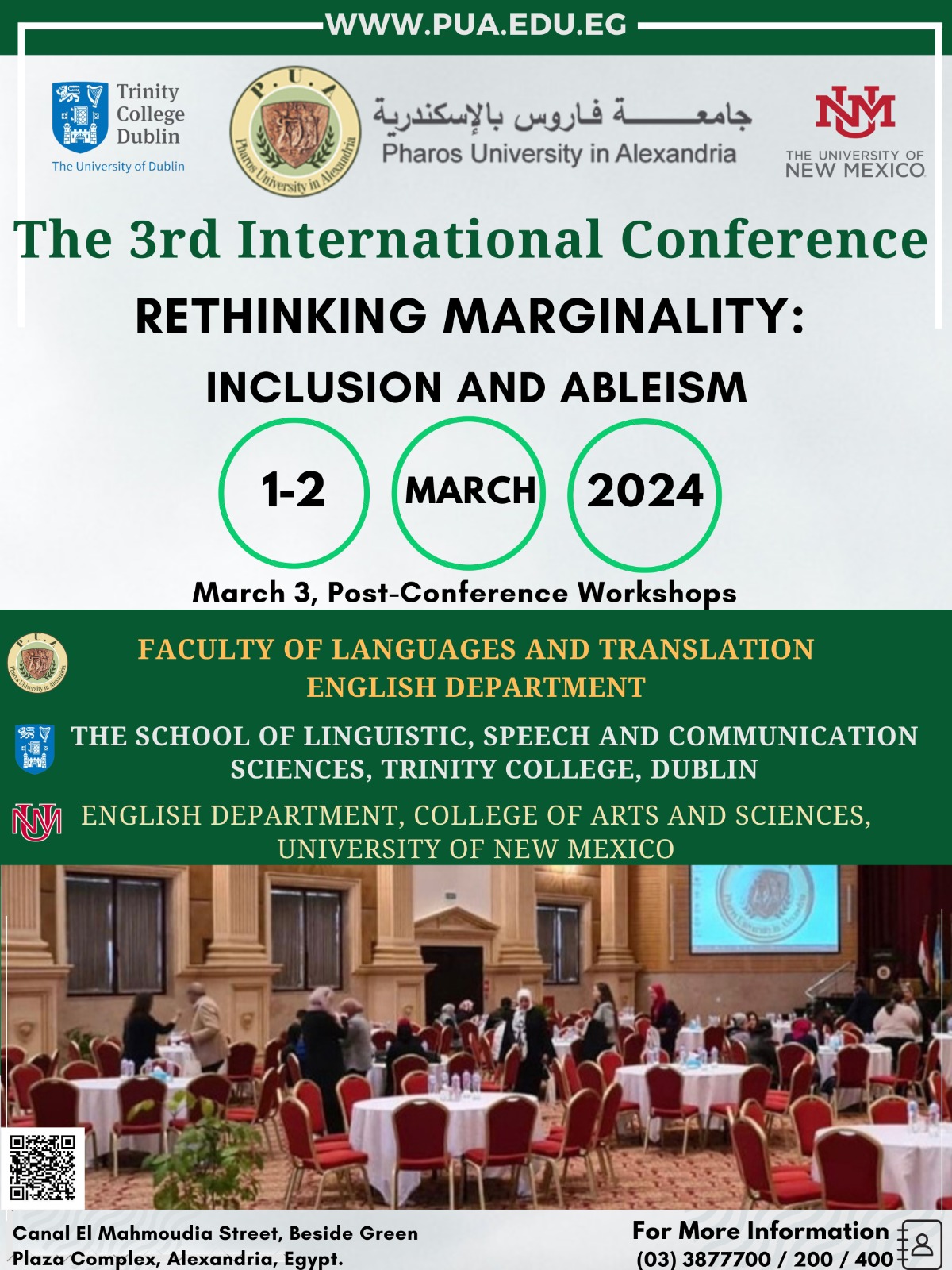Rethinking Marginality: Inclusion and Ableism
Pharos University in Alexandria, Egypt – in collaboration with Trinity College Dublin, Ireland, and the University of New Mexico, USA–cordially invites you to participate in its international conference titled “Rethinking Marginality: Inclusion and Ableism,” to be held onsite from 1 – 2 March 2024.
The term “marginal” is rooted in the Medieval Latin word “marginalis,” which means on the margin or situated on the border. Coined by sociologist Robert Park in 1928, the concept referred to human migrants and the peculiarity of their peripheral situation. Since homo sapiens first walked out of Africa, migration and its discontents have remained a thorn in the side of humanity. More comprehensively, marginality describes the precarious position of excluded and deprived groups but also helps construct the limitations of their socio-cultural involvement. The marginalization of individuals, languages, and cultures is a global phenomenon that results in discrimination and inequalities. The term has gained momentum in the context of rising inequality in a post-colonial, post-liberalized, and post-feminist globalized world.
Among other topics to be explored in “Rethinking Marginality: Inclusion and Ableism” is the marginality of mother tongues in favor of centering languages of established economic/political powers, resulting in marginalizing and disadvantaging cultures over others, affecting decisions on which texts are worthy of translation and which are not. This also extends to marginalizing minority groups in education and how it can affect their academic performance and peer-to-peer interaction and disrupt their sense of belongingness. This year, we are emphasizing disability and ableism in the contexts of marginality and Access Ability. While there is growing care and support for different kinds of impairment, much remains to be done, especially in harnessing technology and AI in learning and inclusion.
“Rethinking Marginality: Inclusion and Ableism” welcomes scholars to submit research on marginality and diversity in literature, cultural studies, pedagogy, translation, and linguistics. We are looking for abstracts that focus on individuals or cultures with precarious positions in society, including those who are physically or mentally disabled, women, minorities, and other intersectionalities with fringe places that may be liminal and problematic.
Established scholars, PhD holders, and graduate students from across the globe interested in marginality and inclusion studies are encouraged to participate in this conference. The topics covered include, but are not limited to:















